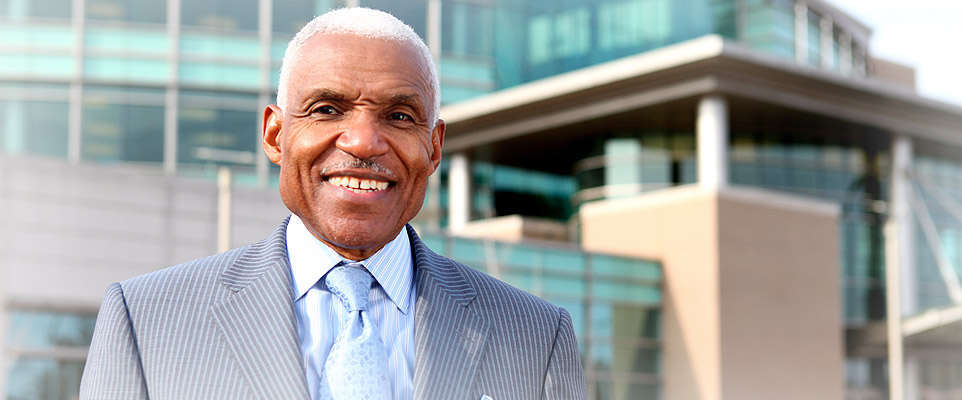Following a campaign whose outcome was set the day he filed his qualifying petition, A C Wharton begins a full four-year term as mayor January 1st, bringing with it pressures to move from the crisis-driven priorities of his first two years to a well-defined Wharton agenda for the next term.
Following the October 2009 special election called after Mayor Willie W. Herenton’s resignation in mid-term, Wharton swamped his opposition. He made a few management changes, but with only 11 days between his election and his move from the county mayor’s office to City Hall, he moved ahead largely with Herenton’s management team while replicating a Herenton controversy with the appointment of political insiders to library management jobs.
This time, he has three months to decide who goes and who stays, and it’s a safe bet that some changes will be made to strengthen his management team and tighten up city operations. If anything was obvious in the last two years, it was that city government was running on auto-pilot in the last years of Herenton’s terms.
A harbinger of things to come occurred on Wharton’s first day in office with a raid by the Sheriff’s Department at the city’s animal shelter in response to abuse and cruelty complaints that proved altogether too accurate. Later, it was learned that the Workforce Investment Network (WIN) was on the verge of losing several million dollars in job training funds because of poor management, and the Division of General Services came under criminal investigation for questionable contracts and purchases. To top it off, City of Memphis lost its legal appeal to eliminate funding for Memphis City Schools, and a general lack of financial discipline complicated answers to solve the problem.
Members of the Wharton administration believe they have gotten too little appreciation for the way controversies kept them from tackling their priorities. Wharton refers to the past two years as triage. His management team is visibly irritated by criticisms that the administration has not been decisive, disciplined, and focused on the problems of average Memphians. They point to bike lanes, the greenline, and a skatepark; an anti-homeless program; the beginning of the redevelopment of The Pyramid and the preparation of the Fairgrounds and construction of Tiger Lane in advance of redevelopment; and stepped-up economic development leading to Electrolux and Mitsubishi.
Polls leading up to the election showed a gap of about 20 percent in Wharton’s support between white and black voters, provoking talk radio comments that he has concentrated on “white projects” and “poor dogs rather than poor people.” It’s a complaint that stings and, coupled with recent Census Bureau data showing that the Memphis MSA has the highest poverty rate of the nation’s largest regions, it’s a sure thing that fighting poverty will be a higher, prominent priority for the next Wharton term.
There’s potential for progress, but it’s not the sort of thing that will play out in news headlines. Yes, it may warm the hearts of policy wonks, but it takes much longer than the public’s attention span to explain how and why.
For three decades, Memphis has been AWOL in important national conversations about cities, and the city paid a price for the absence. Memphis was rarely invited to be part of important discussions and rarely attracted the attention of national organizations with the financial resources to pay for new programs and the influence to change federal policies. As a result of its lack of interest, Memphis has been ignored and overlooked.
That’s one of the most dramatic changes of the past two years. The City of Memphis received $4.8 million from the Bloomberg Philanthropies to fund “innovation teams” to address juvenile violence and core city economic development. The Brookings Institution is developing a “Metropolitan Business Plan” that will map out a game-changing economic opportunity. The Corporation of National Service will administer the $11 million Social Innovation Fund, which is replicating in Memphis an anti-poverty program piloted in New York City. And the Obama White House selected Memphis as one of five pilot cities for special attention by federal agencies as part of its “Strong Cities, Strong Communities” program.
Taken together, all of them — plus some more national announcements to come — in essence create a nationally prominent think tank working with the Wharton administration on the problems of Memphis. It’s not the sort of thing that will move voters in an election, but it has the real potential to move Memphis in the next four years.
This article appears in the November 2011 issue of Memphis Magazine



Very astute observations and is much like the first years of the Obama administration! We are anxious to renew or city’s foundation and image.
The initiatives referenced above represent an unprecedented opportunity to build Memphis into a great(er) city. I can only hope the powers that be will seize the chance to develop a comprehensive approach to using the funds and resources. We cannot afford to fail because individual interests and juvenile turf-ism ruled the day. Philanthropic funding (both local and national) represents a sizable portion of our local economy; it would behoove all involved to gather around a table, assess the commitments we have made to various funders, and develop a collaborative plan for executing the grants and initiatives we are so lucky to have, as well as continue recruiting new national funding. I have no doubt we can do it.